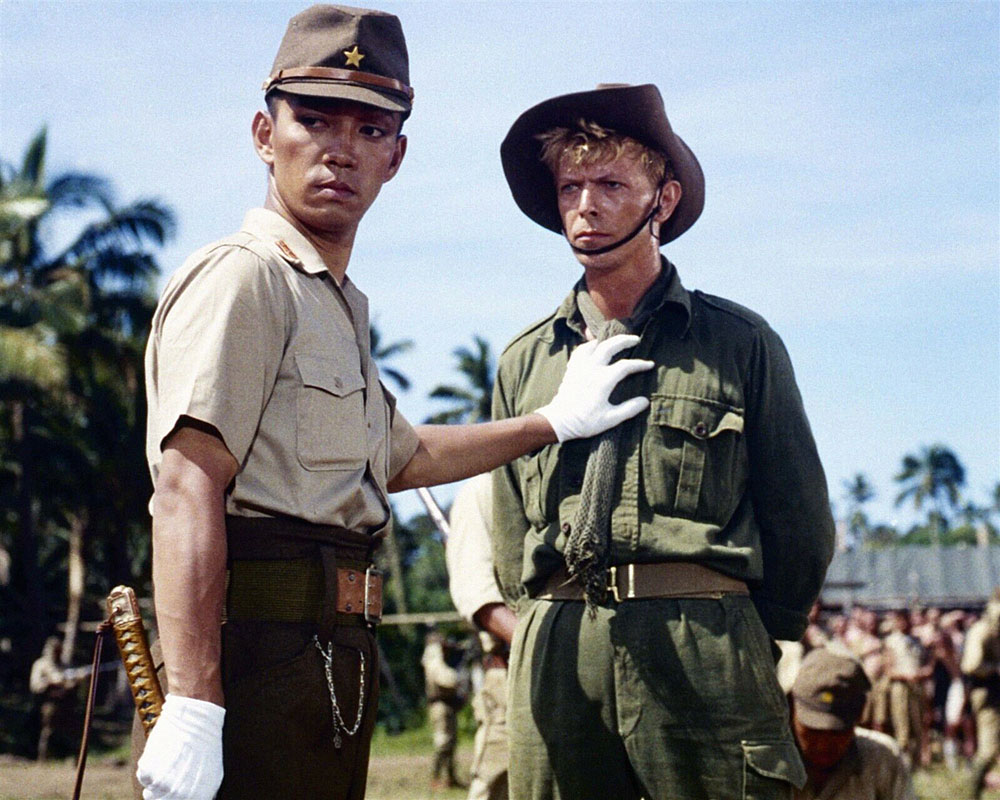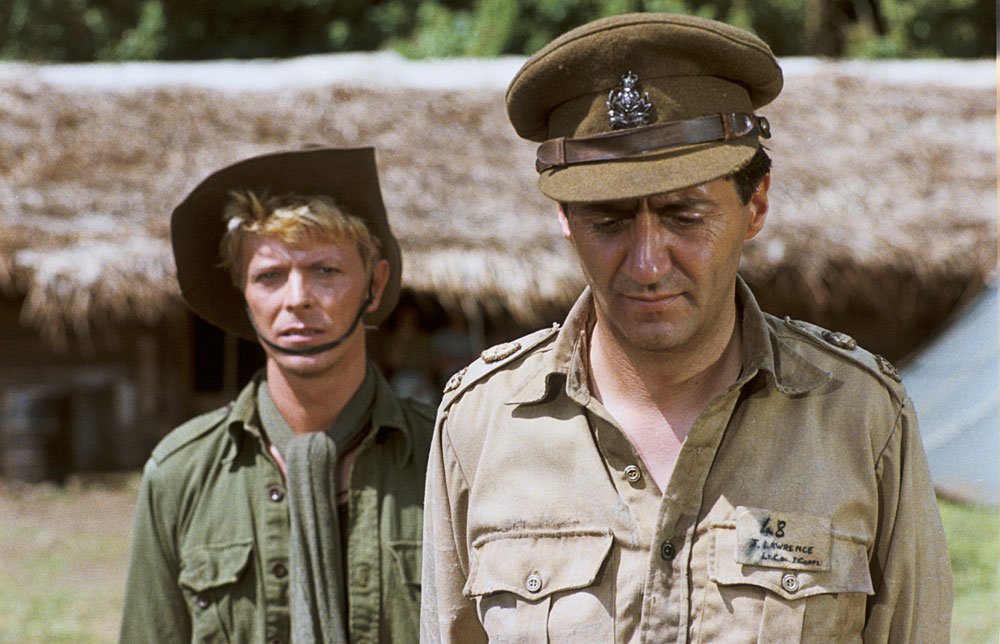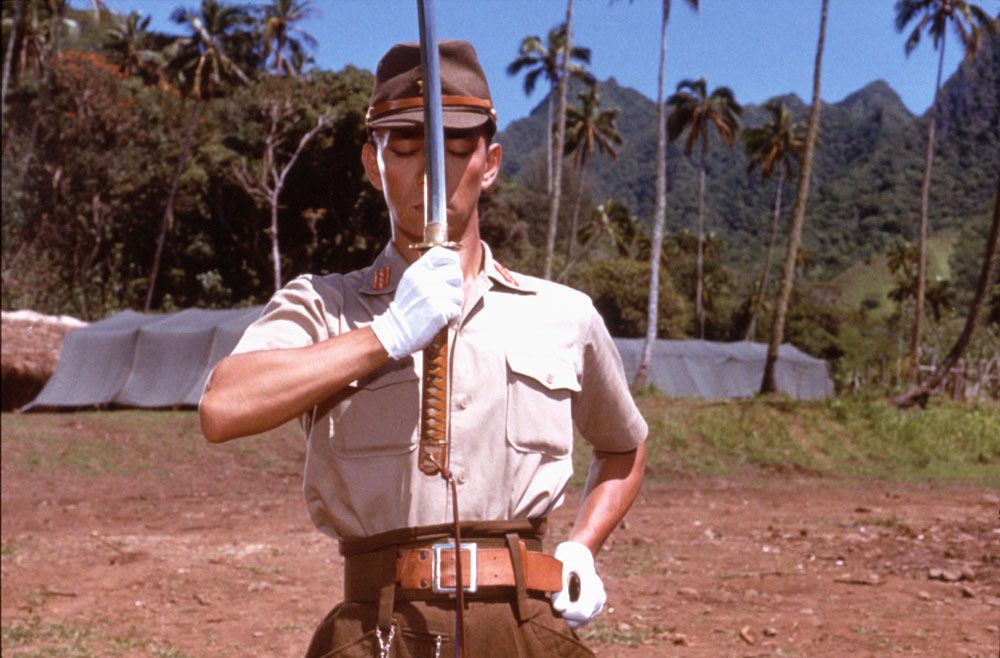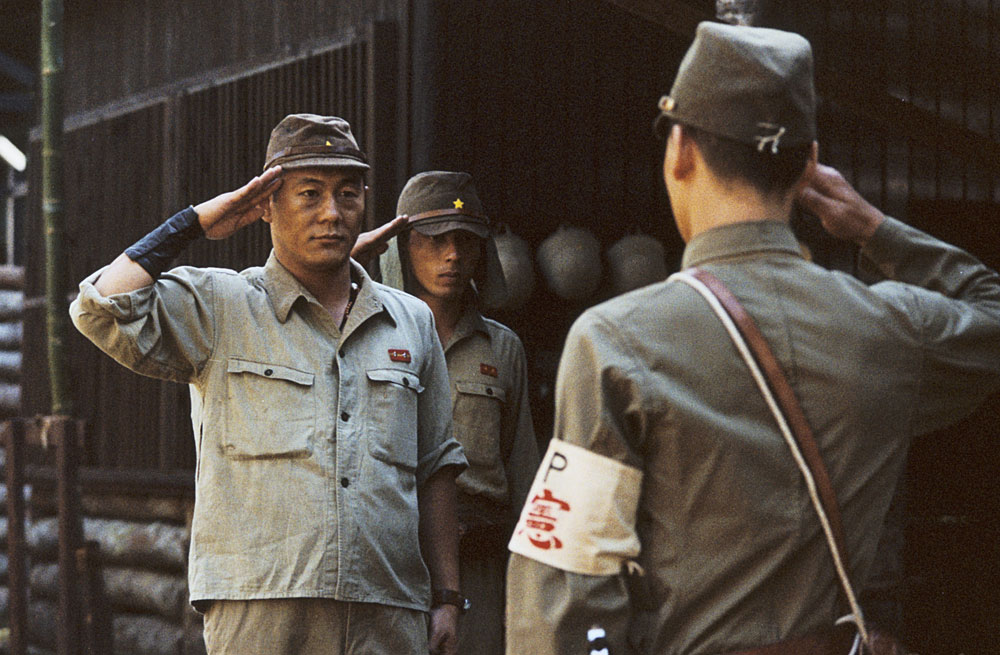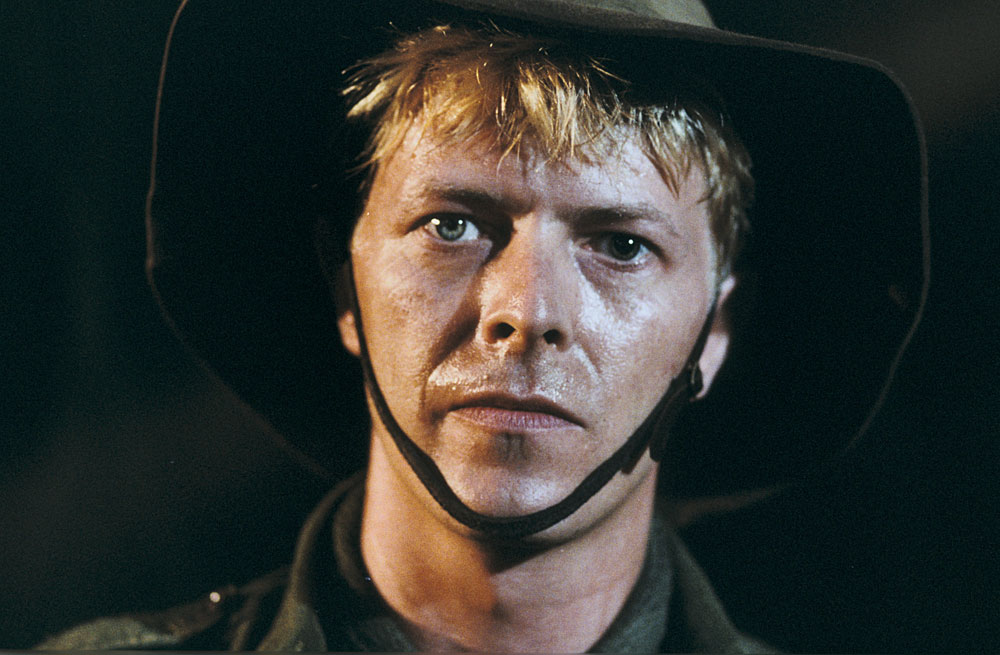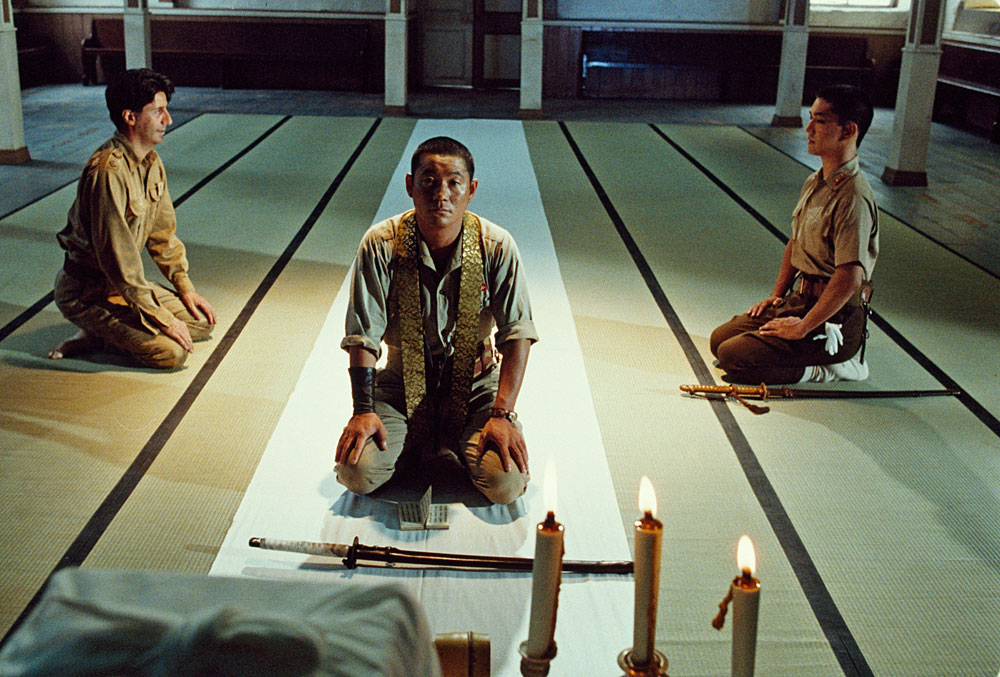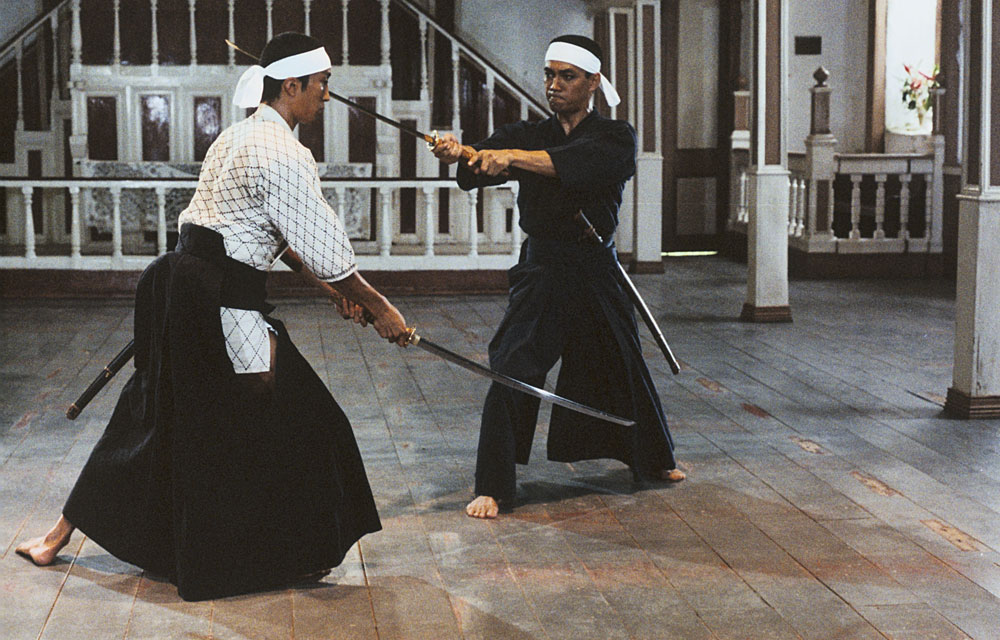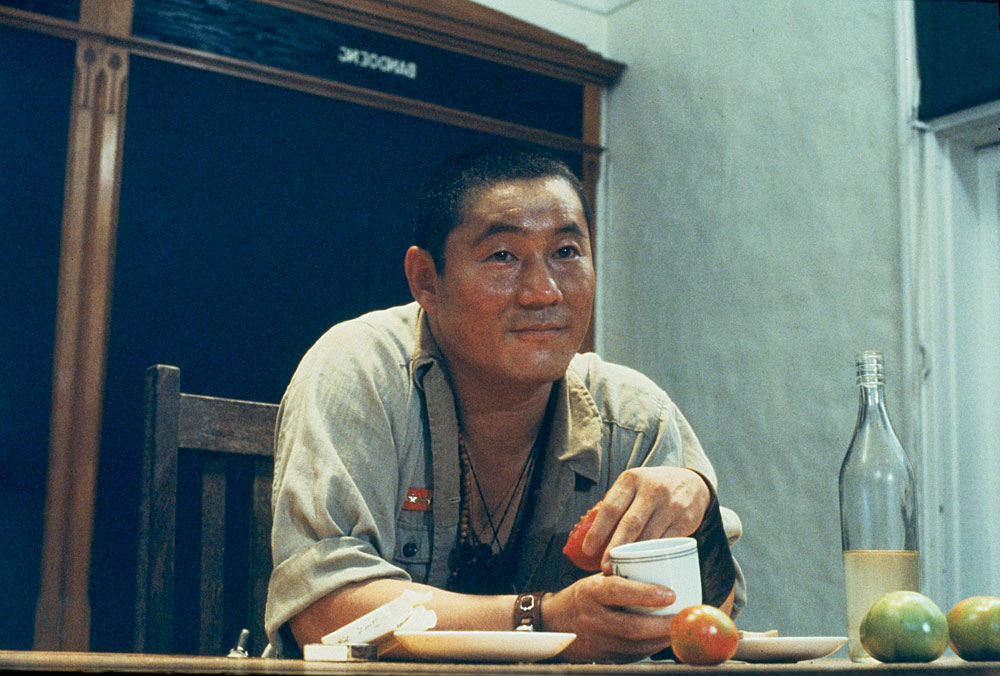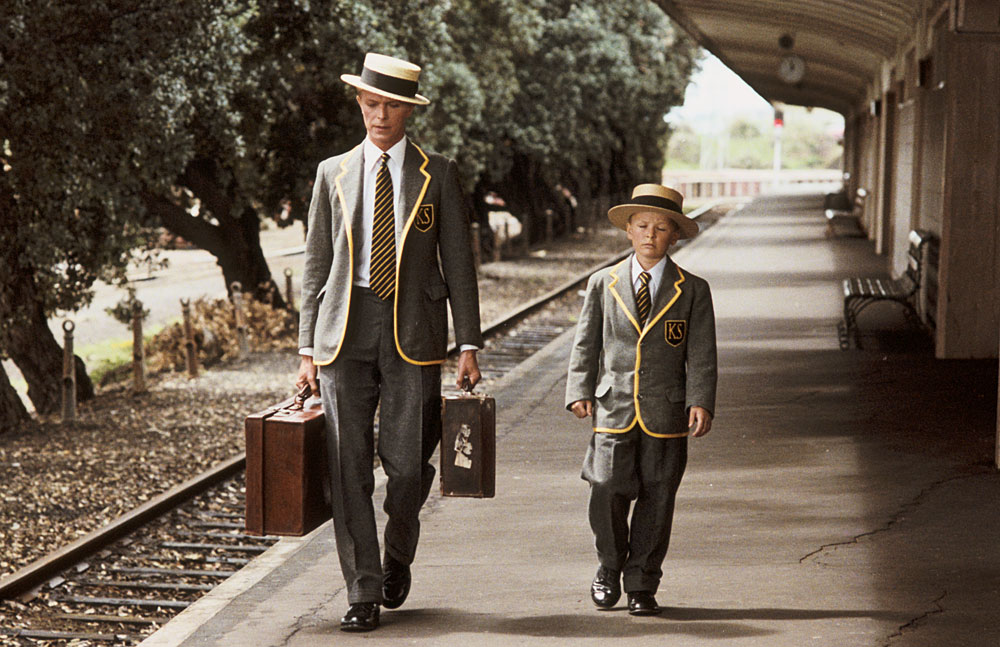A prisoner of war camp on Java 1942, shortly after the Japanese overrun the East Indies. Lieutenant-Colonel John Lawrence has an uneasy relationship with both his compatriots as with his captors. As a former diplomat fluent in Japanese he is caught between both parties, but set to try to avoid confrontation. When the strong-willed and resilient Major Jack Celliers -whom he knows from his service days in North Africa- is brought to the camp, he realises the Japanese will do everything to try to break his spirit. What follows is not merely a struggle to survive, but also a battle of contrasting wills and philosophies…
Nagisa Oshima cast David Bowie (in the year of Let’s Dance!) in the role of the enigmatic Major Celliers. Camp commander Yonoi --who lives by the Samurai code of honor, but is secretly and fatally attracted to the blonde officer-- is played by Ryuichi Sakamoto. This was not only Sakamoto’s acting debut, he also wrote his first film score. Playing opposite of Tom Conti (Lawrence) Oshima cast as the camp’s second in command Hara, stand-up comedian and megastar Takeshi Kitano, for whom this was his first serious dramatic role.
“I have a little anecdote about David Lean’s The Bridge over the River Kwai. When William Holden was considered to play the character /…/ he advised Lean to film The Seed and the Sower, rather than The Bridge over the River Kwai, because he found it a better book. For my part, when I announced the project, all the distributors “advised” me to do something resembling David Lean’s film, while I rather had Jean Renoir’s La Grande Illusion in my head. /…/ Merry Christmas, Mr. Lawrence is about the inner human spirit that war cannot touch.”
- Nagisa Oshima
“A great unique and deeply moving film, the only war film I’ve ever seen that doesn not exploit the surface drama and horrifics of war, but penetrates deep into the origins and meaning of war in the human spirit. Moreover it is unflinchingly honest and brave and looks with the same unevasive and unblinking eyes into the character of Japanese and Europeans alike. The visual imagery and symbolism, which are Oshima’s natural idiom, speak directly to every man and in a language that needs no translation and is incapable of misunderstanding.”
- Sir Laurens van der Post
“I have been so impressed with Mr. Oshima’s method. The wonderful thing about making a movie with him is that he has laid such a wide perimeter around what we actors are doing and has left us to make the choices. It has been an exhilarating experience to be in this film. /…/ I think that Oshima frees actors. /…/ There’s a strong parallel, actually, with the way I record and the way he makes movies. /…/ This film is unique, visually. There is such a cleanliness of line and thought in its direction. The shots are uncluttered. It is like looking through a lens into the window of a lovely Japanese house.”
- David Bowie
“I started off very lucky because Mr. Oshima trusted me completely. He gave me total creative freedom—and that was my first score. I wondered, Is he okay? I was an amateur in acting and in film scoring. /…/ This was my very first experience acting in a film. When we went to see the rough cut, I hated my acting so much. I thought it was so ugly and so bad. When I started writing the music, I said to myself, okay, let’s put beautiful music on top of my bad acting scenes. I am half-joking but half-serious...”
- Ryuichi Sakamoto
Press
“David Bowie plays a born leader in Nagisa Oshima's Merry Christmas Mr. Lawrence, and he plays him like a born film star. Mr. Bowie's screen presence here is mercurial and arresting, and he seems to arrive at this effortlessly, though he manages to do something slyly different in every scene.”
Janet Maslin, The New York Times, 1983
“Few films have been able to capture David Bowie’s charisma, but Oshima’s wartime drama seems tailor-made for his talents. Tom Conti has rarely been such a sympathetic guide for the audience’s emotions.”
- Christopher Nolan, Top 10 - The Criterion Collection
“/.../ one of the few Oshima works to wear its heart so clearly on its sleeve: never before had the director indulged in so many Old Hollywood moments, so many stirring, music-driven reveries /…/, so much shameless tear-jerking. /…/ Not that Oshima auteurists are likely to be disappointed by the director’s temporary turn to such mainstream moviemaking fillips: his signature passions and political agonies are everywhere.”
- Chuck Stevens, The Criterion Channel, 2010
“One of Bowie’s greatest performances despite, or probably because of being one of the most atypical, in Nagisa Oshima‘s moving POW film, he brings all his innate charisma to bear on the character of Celliers /…/. the film is a remarkably clever and rather underappreciated examination of the human cost of war in one of the most inhuman places on earth.”
- Jessica Kiang, Indiewire
“One of Japan’s few accounts of its own POW camps /…/ Through it all Oshima continues exploring his major theme of social constructions (such as armies) undermined by love.”
- Donald Richie, A Hundred Years of Japanese Film
“/…/ the film plays even better today. Bowie is superb, as is Ryuichi Sakamoto, whose evocative soundtrack is one of the best ever to grace a motion picture. It's time for you to discover Oshima.”
- Phelim O’Neill, The Guardian, 2011
